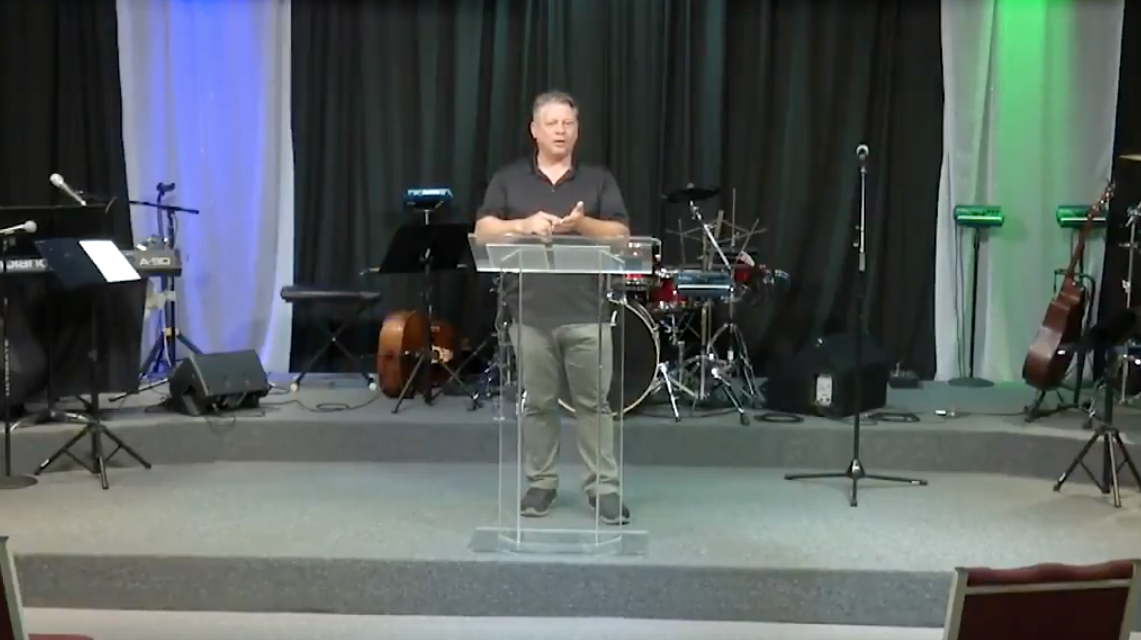Author: David Robinson
We live in a hyper-sensitive and easily offended culture. Too many people today don’t know how to deal with their emotions. They can’t handle it when someone offends them—even when the offense was clearly unintentional. Indeed, even believers are getting caught up in their offenses, bringing strife and division to the body of Messiah.
Should we be surprised? Not at all. Yeshua prophesied of the end days that “many will be offended, will betray one another, and will hate one another” (Matthew 24:10). We are seeing this play out in our world today. The enemy’s goal is to deceive the elect, and he accomplishes that goal through offense. Satan knows that offense causes us to be unsettled, unstable, and therefore vulnerable to his deception and manipulation.
So how are we supposed to respond when we’re offended? And how do we help others “come to their senses and escape the snare of the devil” (2 Timothy 2:25-26)? Let’s begin by looking at some of the meanings of “offense.”
What does it mean to be offended?
According to Webster’s English dictionary, offense is “something that outrages the moral or physical senses.” Another definition of offense is “a cause or occasion of sin.” In Hebrew, one of the words used to represent offense is asham, which means to do wrong or trespass. But most interestingly, the concept of offense in Greek is represented by the word scandalon, which is the movable stick or trigger of a trap or snare.
As a kid I used to trap rabbits. (This was obviously long before I started keeping kosher!) I would set up a little box with a trigger device that would cause the box to fall on the rabbit once it was inside of it, trapping it. But in order to entice the rabbit to get under the box, there had to be bait—in this case, carrots. I think offense can be understood in this same way. It’s a trap!
What is the root of offense?
In order for offense to trap us, there needs to be bait. And the bait has to be something that we really desire. After many years of counseling people, I’ve learned that it all comes down to our sense of value. We all want to be affirmed. We all want to be loved. Like food, these are essential human needs that God created us with. The trap is that we look to the wrong source from which to fulfill these needs. God created us with a sense of value and purpose because He wants us to pursue His divine presence in which these needs are completely satisfied. But rather than seeking God, we look to other fallen, imperfect people to fulfill us ... and we fall for the trap in thinking that they can.
Do you have a right to hold on to your offenses?
Whether or not you have a right to be bitter depends on whom you ask. If someone hurts your feelings and you run and tell your friends because you’re seeking their validation, they will most likely affirm your offense—even if you are wrong. So sadly your friends typically aren’t the best people to go to unless they are spiritually mature enough to assess the situation objectively and have the guts to tell you that you are wrong and need to make things right. The best place to turn for your answer is God’s Word:
Let all bitterness and wrath and anger and clamor and slander be put away from you, along with all malice. Be kind to one another, tenderhearted, forgiving one another, as God in Christ forgave you. (Ephesians 4:31-32)
We are commanded to put away all bitterness and anger. We are commanded to forgive those who offend us. According to God’s Word, we do not have the right to hold on to our offenses. But why is it so hard to let it go? Because we’ve forgotten that we’ve been forgiven. If we are able to keep in mind how much God has forgiven us, it would be much easier to forgive others.
How are we freed from the trap of offense?
As mentioned earlier, the first step is to acknowledge that you’ve been forgiven a great debt; therefore, what right do you have to withhold forgiveness from others? Once you truly come to grips with your sins and the depth of God’s forgiveness, it is from that basis that you can see your offender as a fallen, imperfect person just like you. They weren’t designed to fulfill your need for love and validation. They’re incapable of perfectly affirming your value. Only God can do that.
Next, we must initiate reconciliation. Most of the time when people offend you, it was unintentional and they are completely unaware of it. In those cases, it’s very easy to reconcile as most people (especially if they are a friend) truly wouldn’t want to offend you and therefore they are quick to apologize and make things right. But even if the offense was intentional, the Bible gives us a great outline for initiating reconciliation:
If your brother offends you, go and confront him while the two of you are alone. If he listens to you, you have won back your brother. (Matthew 18:15)
The enemy loves to operate in darkness and play off your doubts and assumptions. Most conflict is due to a lack of communication. Honest discussion about your offenses opens the door of the trap for you to escape!
So if you are trapped in your offenses, know that escape is possible. All you need to do is receive, release, and reconcile. Receive God’s forgiveness. Release your offenses towards others. And reconcile with the person who offended you. Let the Lord free you from the trap of offense!
Read this article in Portuguese here.

Partner With Us
Your support makes it possible for us to share the Word of God with people around the world through our weekly services, live broadcast, and online media resources like this article. Partner with us in reaching the nations with the Gospel of Yeshua/Jesus and the truth of His Word!





























































